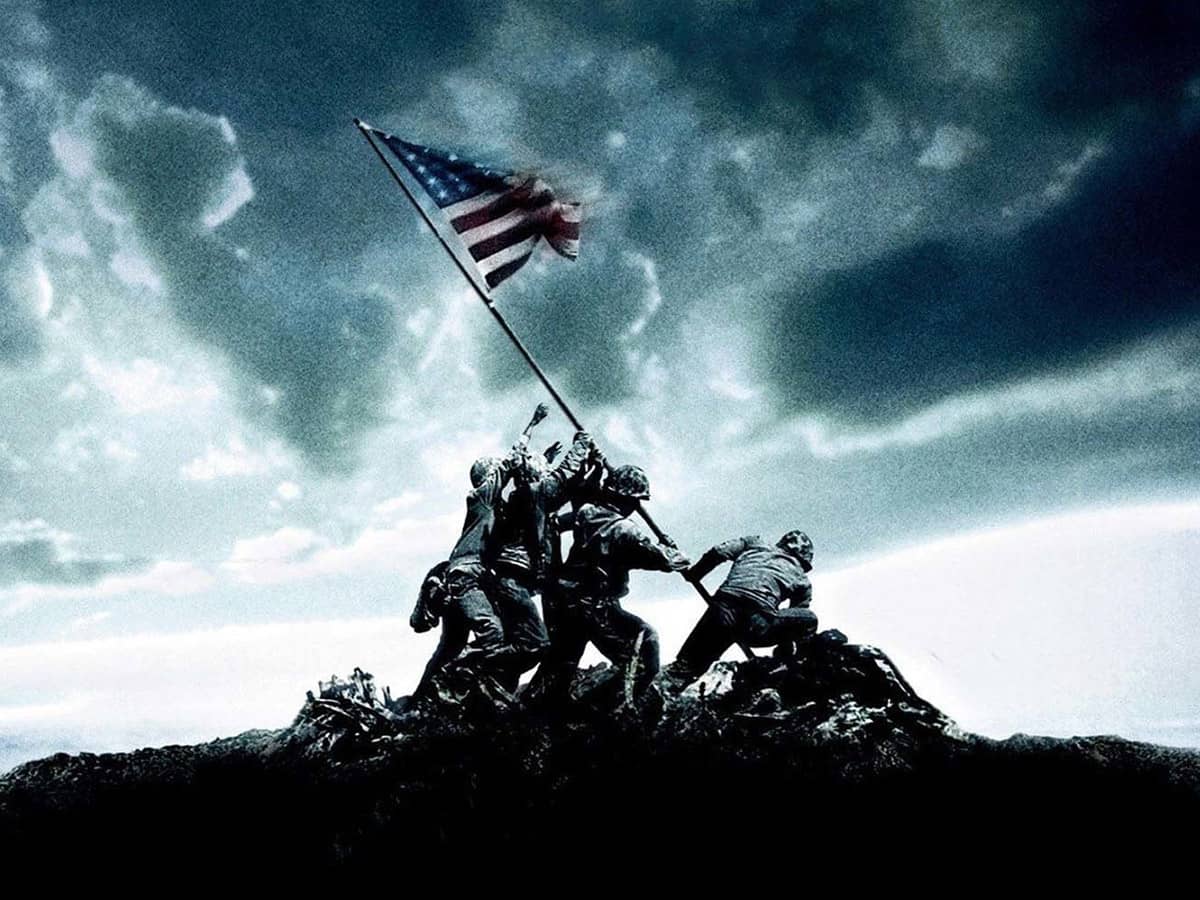5 - Gandhi
"The object of this massive tribute died as he had always lived, without wealth, without property, without official title or office, was not the commander of armies, nor the ruler of vast lands. He could not boast any scientific achievement or artistic gift. Yet men, governments, dignitaries from all over the world have joined hands today to pay homage to the little brown man in the loin cloth, who led his country to freedom."
So eulogized radio journalist Edward R. Murrow at the funeral of India’s legendary independence leader, Mahatma Gandhi, as this film opens. In 1981, 33 years after Gandhi’s assassination, Director Richard Attenborough re-created the scene in New Delhi with an estimated 400,000 volunteers – and little cooperation from India’s elite, who resented that it cast a white Englishman, Ben Kingsley, in the title role. However, perfecting Gandhi’s gentle mannerisms and trademark humility, Kingsley becomes the great Indian leader in this 3-hour, 11-minute epic that won eight Academy Awards and multiple Golden Globes.
It begins in 1893 as the stubborn young attorney is thrown off a South African train for traveling in a first-class compartment reserved for whites. Infuriated, he leads non-violent protests and after numerous arrests and the unwanted attention of the world, the South African government relents by easing apartheid restrictions on Indians, but not native blacks.
After his South African victory, Gandhi takes up the fight for India's independence from the British Empire. What follows is a stunning account of British violence against the protesters, Gandhi's frequent imprisonment, his famous hunger strikes, his deep love for his wife, and his cross-country marches – repudiating the dress of the white man and wearing only a loincloth of linen he spun himself.
But even if Gandhi does achieve independence for his homeland, he must resolve the blood hatred between India’s Muslims, Hindus, Sikhs, Jews and Christians. Patiently, he molds a coalition of arch-rivals, such as Mohammed Ali Jinnah, who became Pakistan’s first Prime Minister, Indian leaders Sardar Valabhbhai Patel, J.B. Kripalani and Maulana Azad as well as India’s eventual first Prime Minister, Jawaharlal Nehru, to ensure first that the British will leave India, then that the second largest nation in the world can succed.
This is the astonishing story of one of history’s most remarkable pacifists – who vanquished the British Empire, gained autonomy for his homeland, and stands as a role model for all who yearn to bring about change without conflict, justice without bloodshed and peace in the midst of irreconcilable differences.
~ Rob Kerby

